Reviews
Clarence Brown
USA, 1928
Credits
Review by Jenny Jediny
Posted on 26 February 2009
Source TCM broadcast
Categories The Silence After Sound: Hollywood’s Last Silent Movies
Estranged lovers, jealousy, upper-class escapades, binge drinking, the love that dare not speak its name: these are the perils suffered by the Merrick siblings in A Woman of Affairs, starring “The Face” of silent cinema and beyond, Greta Garbo. For the silent film dilettante (myself included) the viewing of a non-iconic Garbo title is a bit adventuresome, as there’s often little reputation preceding it other than the star herself. While A Woman of Affairs hinges somewhat unfortunately on female martyrdom, the contemporary vices (and ensuing misfortune) of the wealthy Merrick family gives the film a tartness that the performances - not merely Garbo’s - deliciously play off of.
To push plot out of the way - the least interesting, and fairly absurd aspect of the film - Diana and Jeffry Merrick are upper-crust English siblings, with a mutual childhood friend, Neville, whom Diana loves. Neville is decidedly middle-class; his father disapproves of the Merricks (for their “reckless,” indulgent lifestyle), and breaks up the love affair, the catalyst that destroys the lives of both Merricks.
While Diana suffers more throughout A Woman of Affairs, she’s hardly the troubled sibling; Jeffry, an all-too brief role inhabited by Douglas Fairbanks Jr., is the real devil, an alcoholic wreck who admires his friend David Furness a bit too intensely. Jeffry’s rage at Diana’s tardiness when meeting David for cocktails is tinged with incredulousness that Diana would dare make his “hero” wait, (although David seems to do little to inspire such accolades, except display sportsmanship at rowing). Jeffry’s conspicuous envy toward the pair also seems to stem from David’s love for Diana, whom he eventually marries after Neville has left the country. A Woman of Affairs never spells out Jeffry’s sexuality of course, but Fairbanks’ adulation for and subsequent heartbreak over David’s demise indicates feelings that run deeper than male kinship.
Diana’s disastrous marriage to David is one of the major changes from the source for the film, Michael Arden’s 1925 novel and play, The Green Hat. While Arden’s work also follows the lives of immoral aristocrats in 1920s London, it was too torrid for MGM to handle. On Diana and David’s wedding night, he commits suicide when police officers arrive to arrest him for “kleptomania;” in the novel, the husband kills himself in order to prevent his new bride from contracting one of his numerous venereal diseases. David’s suicide drives Jeffry over the edge, as a sauced Fairbanks Jr., dies from a failed liver, and pushes Diana into the arms of wealthy men who were David’s victims, in order to protect his reputation.
Despite her formidable reputation, it’s still incredible that Garbo manages to pull off a character that endures such a nonsensical plot twist. Diana Merrick is charming, whether pulling playfully on a lamp chain and gleefully laughing as the light flashes on and off her lovely face, or briefly seducing a newly-engaged Neville, pulling him toward her on a chaise lounge as the camera follows her hand, as her wedding ring slips to the floor. Certainly enhanced by a fantastic wardrobe (what lovely coats!) and exquisite lighting, Garbo’s beauty is enchanting simply on its own, most noticeably in her wide-eyed, delicately structured face. Her acting is measured yet emotionally nuanced, emphasizing a talent that would carry over into the sound era.
The real-life romance between Garbo and John Gilbert enhances their onscreen romance, necessary in convincing us why such a free spirit as Diana would endlessly pine for Neville, a pushover who can’t stand up to his domineering father. Despite being handsome as a couple, Gilbert’s a bit of a let down, especially as he’s torn between Diana and his new wife, the aptly named Constance (the maudlin soundtrack doesn’t help matters, badly enhancing the soap-opera atmosphere of the love triangle). Inevitably Diana makes Neville’s decision for him, preventing him from following her to South America with a fatal choice. This mediocre end is partially what keeps A Woman of Affairs a Garbo B-movie of sorts; however, like any B-movie, its quirks - and of course, the goddess Garbo - make it worth watching.
More The Silence After Sound: Hollywood’s Last Silent Movies
-
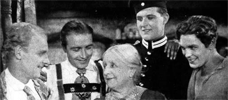
Four Sons
1928 -
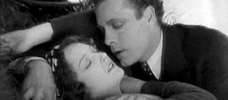
The Crowd
1928 -

A Girl in Every Port
1928 -
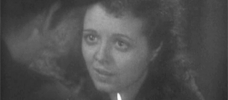
Street Angel
1928 -

The Patsy
1928 -
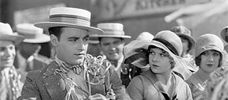
Lonesome
1928 -

Our Dancing Daughters
1928 -

Beggars of Life
1928 -
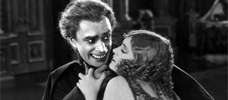
The Man Who Laughs
1928 -

The Docks of New York
1928 -

The Wind
1928 -
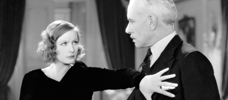
A Woman of Affairs
1928 -
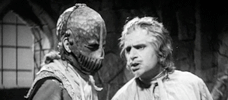
Iron Mask
1929 -
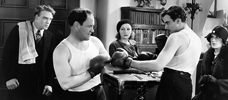
The Single Standard
1929 -

City Girl
1930 -

The Wedding March
1928
We don’t do comments anymore, but you may contact us here or find us on Twitter or Facebook.



